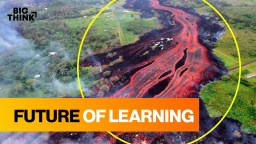nature
Fractal patterns are noticed by people of all ages, even small children, and have significant calming effects.
A new “evidence-based nature prescription program” will see patients spending time in the woods.
See the most detailed survey of the southern sky ever carried out using radio waves.
A biologist-reporter investigates his fungal namesake.
Researchers document the first example of evolutionary changes in a plant in response to humans.
Anastasia lives alone in perfect harmony with nature – or so the story goes – and nature serves her devotedly.
Scientists have identified the largest ever assemblage of mammoth bones.
“Interacting” with nature through virtual reality applications had especially strong benefits, according to the study.
The young man died nearly 2,000 years ago in the volcanic eruption that buried Pompeii.
A new study finds that starlet sea anemones have the unique ability to grow more tentacles when they’ve got more to eat.
Spending time in green spaces seems to yield many health benefits, most of which researchers are only beginning to understand.
Declining bee populations could lead to increased food insecurity and economic losses in the billions.
Avocado evolved in the warming climates of Central America during the Neogene period, roughly 10 million years ago.
If Arctic ice continues to melt at its projected rate, the bears will go extinct due to starvation by the end of the century according to a first-ever projected timeline.
Stone stackers enjoy the practice as a peaceful challenge, but scientists warn that moving small stones has mountainous consequences.
Unraveling the mysteries of adult neurogenesis may have clinical applications.
The importance of finding and shaping learning communities.
▸
3 min
—
with
Scientists are befuddled by where the shark gets most of its food.
It looks like a busy hurricane season ahead. Probably.
Maybe you’ve been wondering if you’re seeing one persistent squirrel or a rotating cast of characters.
There are countless studies that prove ecotherapy (often referred to as nature therapy) is beneficial for your physical and mental health.
Researchers think they know how a group of ancient sloths, who died thousands of years ago in Ecuador, met their untimely end.
Why do some people still believe that behavior is caused solely by genes or environment? A new paper offers some answers.
Each pile of dung contains a cornucopia of seeds, perfect for reforesting.
Two of Iceland’s largest whaling companies are keeping their boats in port this summer. One of them permanently.
Today’s agriculture workers face 21 days of heat that exceed safety standards. That number will double by 2050.
Why did the dinosaurs go extinct? Because they didn’t have a space program.
▸
4 min
—
with
Non-avian dinosaurs were thought terrestrially bound, but newly unearthed fossils suggest they conquered prehistoric waters, too.
The Sahara is a harsh environment today. It used to be much, much, worse.





























